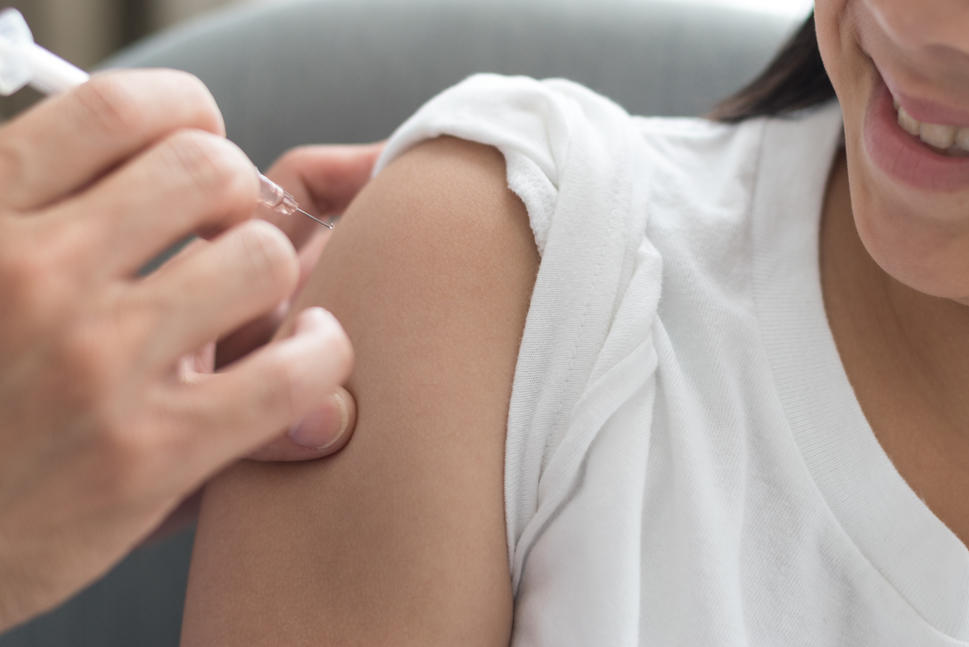Cervical cancer, which affects more than half a million women around the world annually, could be nearly eliminated with a combination of increased uptake of the prophylactic human papillomavirus (HPV) vaccine, and cervical cancer screening and diagnostic follow-up and treatment of precancers. As of 2022, fewer than 15% of age-eligible girls globally received even a single dose; a similarly low proportion of women receive cervical cancer screening. Rapid gains in access to and uptake of HPV vaccination are needed to avert the millions of projected HPV-related cervical cancers expected over the coming decades as the global population ages.
Public Health Impact
Researchers are conducting the PRISMA Trial to see if one dose of HPV vaccine is sufficient to reduce the risk of HPV infection in young adult women. If positive, the trial would pave the way for vaccination of large numbers of young adult women and could help to accelerate the timeline for cervical cancer control, averting potentially millions of projected HPV-related cervical cancers.
Background and Study Rationale
In the non-randomized extension of the Costa Rica HPV Vaccine Trial (CVT), DCEG and Costa Rica investigators reported long-term protection against HPV 16 and HPV 18 infections and stable antibody levels among women who received a single dose of the bivalent HPV vaccine more than a decade earlier. These observations raised the possibility that a single dose of HPV vaccine may offer sufficient durable protection and provided the foundation for two other ongoing clinical trials conducted by NCI and ACIB-FUNIN: ESCUDDO (efficacy trial, Clinical trials identifier: NCT03180034) and PRIMAVERA (immunobridging trial, Clinical trials identifier: NCT03728881).
The research question of single-dose HPV vaccine protection is also being investigated in other trials, including the DoRIS trial in Tanzania (immunogenicity trial and sister study to ESCUDDO, Clinical trials identifier: NCT02834637), the KenSHE trial in Kenya (efficacy trial, Clinical trials identifier: NCT03675256), and the HANDS HPV trial in the Gambia (immunogenicity trial, Clinical trials identifier: NCT03832049).
Study Design
PRISMA will vaccinate approximately 5000 women in Costa Rica aged 18–30 years. The women will be randomized in a blinded fashion to one of three vaccine arms (one dose of the nonavalent vaccine, one dose of bivalent vaccine, or one dose of active control Tdap vaccine). After vaccination, the women will be followed every six months for three years to determine total reduction of incident cervical HPV 16/18 infections that persist six or more months. To further generate data on the potential of a single dose to protect against HPV infections at non-cervical anatomic sites where HPV causes cancer, the trial will also investigate reductions in oral and anal persistent HPV 16/18 infections afforded by one dose compared to no vaccination.
In the U.S., Cervarix® and GARDASIL®9 are currently approved for three doses in individuals 15 years and older. By generating data on the efficacy of single-dose HPV vaccination at multiple anatomic sites and evaluating the impact and cost-effectiveness of an age-expanded single-dose HPV vaccination program in a middle-income country, NCI advances its goal of providing data to recommending bodies to consider changes to vaccine policy. See the PRISMA trial Clinicaltrials.gov (NCT05237947).
PRISMA is supported by the NCI and the Bill & Melinda Gates Foundation.
For more information, contact Dr. Aimée R. Kreimer.
Infections and Immunoepidemiology Branch - Research Areas
